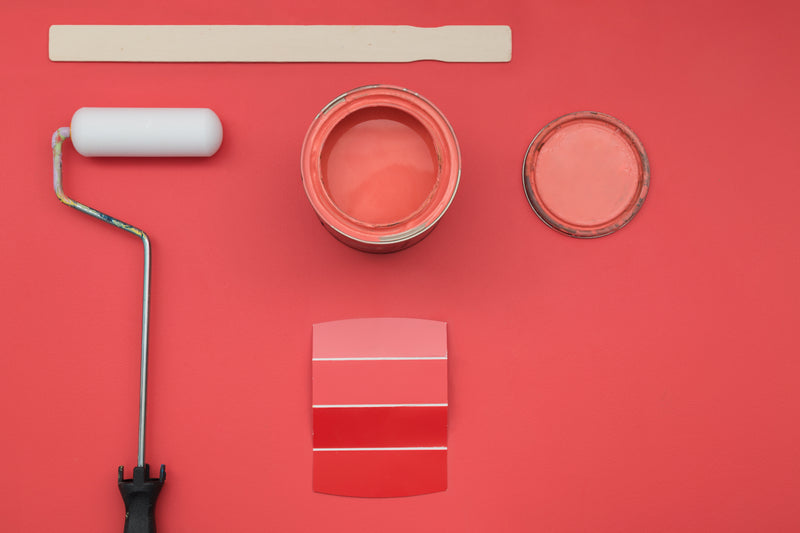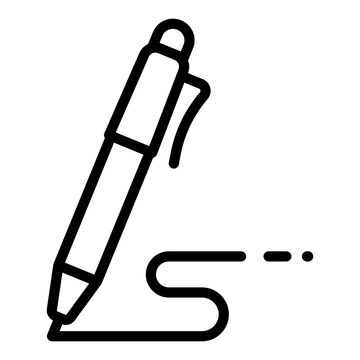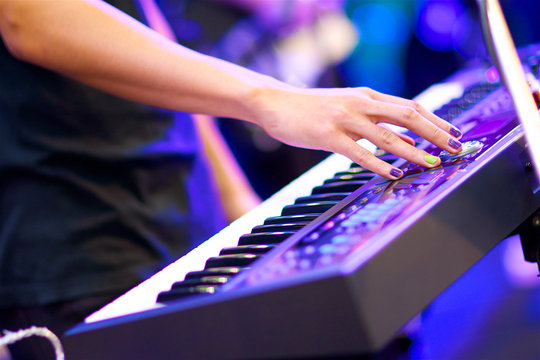Do I Need to Learn Piano for Music Production? Are you considering taking up piano to become a better music producer? In this blog post, we’ll explore the pros and cons of learning piano for music production. Whether you’re just starting out in the world of music production or have been at it for a while, this post will help you make an informed decision about whether or not to learn piano. Read on to find out more!
Table of Contents

Is Piano Necessary for Music Production?
Piano is not as necessary as some people might believe in order to produce successful music. While keyboard playing can certainly be a valuable asset when it comes to composing and arranging songs, synthesizers and digital pianos can often do the same job with less difficulty. Unless you require an authentic sounding piano for specific audio needs, learning how to play one may not actually be worth your time.

Pros of Learning to Play the Piano for Music Production
The Pros of Learning to Play the Piano for Music Production
There are many pros to learning to play the piano for music production. First and foremost, playing the piano can help improve your musical skills. Additionally, piano playing can give you a better understanding of how different genres of music are composed and arranged. Additionally, piano playing can help you develop a better sense of rhythm and timing. Finally, piano playing can also help you develop your keyboard skills in a studio environment.
Cons of Learning to Play the Piano for Music Production
The vast majority of electronic music is made on synthesizers or digital pianos. While both instruments produce sound, synthesizers are more often used in industrial and techno genres while digital pianos are more commonly found in pop and rock music. Which one you choose largely depends on your personal preferences and the styles of music you’re interested in.
Piano learning can be a useful tool for any musician looking to add keyboard skills to their arsenal, but it’s not necessary for producing electronic music. Learning to play the piano will give you some basic chops that may come in handy when composing or arranging electronic tracks, but beware that certain styles of electronica require different skills than others. If you want to make trance or dubstep music, for example, learning how to use synths might be a better way to go about it.

Synthesizers vs Digital Pianos: Which Is Better?
There is no one-size-fits-all answer to this question, as the best way to play the piano for music production will vary depending on your specific needs. However, some of the most common reasons why people choose to learn to play the piano include developing a stronger understanding of chords and melody, improving improvisation skills, and expanding their chord knowledge across different genres. Additionally, keyboards such as synthesizers can often replicate the sound of acoustic pianos, making it unnecessary for many music producers to learn how to play an instrument in addition to producing music.
The best way to determine whether or not you need to learn how to play the piano for music production is simplyto ask yourself what sorts of capabilities you hope eventually develop while playing: Do you want better chord knowledge? Technique development? A wider repertoire? Improvisational prowess? The answers should help you determine which levels of instruction are right for you.

Tips on How to Learn Basic Piano Skills for Music Making
There are a few different keyboard instruments you can use in music production, and each requires a different set of skills. If you’re new to the field, it’s helpful to start off with a keyboard that is simple to learn on, such as an electric piano or an acoustic piano. As your skill level grows, you can explore more complex keyboards and instruments, such as synthesizers or digital pianos.
When selecting which keyboard to purchase for music production, it’s important to consider your budget and needs. It might be worthwhile to invest in a synth if you want to create electronic music, while an acoustic piano will work well for most pop and rock songs. It also depends on the genre of music you plan on making: some styles require more technical playing than others. When choosing an instrument or keyboard for music production, make sure to read up on specific requirements so that you’re purchasing the best possible tool for your goals.

Understanding Different Genres and How They Require Different Keyboard Skills
Understanding the Role of the Piano in Different Genres
When it comes to understanding different genres and how they require different keyboard skills, it’s important to first understand the role of the piano in each genre. For example, a piano is often used in ballads and love songs, so those genres typically require a lot of pianist skills such as accurate timing and rhythm. On the other hand, a piano is less commonly used in heavy metal and rap music, so those genres typically require more keyboard skills such as improvisation and strong beats.
Exploring the Benefits of Learning Piano for Music Production
One of the most popular instruments in music, the piano has a broad range of capabilities that go beyond simply providing accompaniment. By understanding different genres and how they require different keyboard skills, you can better optimize your learning experience and ensure that you’re getting the most out of your musical endeavors.
Popular Genres: Pop, R&B/Hip-Hop, Soul, Rock
Popular Piano Styles: Blues Harpsichord (or Pianoforte), Classical Beethoven (or romantic) pianos, Jazz clubs often have “jukeboxes” with selections from these styles
Examining the Drawbacks of Learning Piano for Music Production
Understanding different genres and how they require different keyboard skills can be a daunting task for someone just starting out in music production. However, with a little bit of research and some practice, you can start to develop the skills you need to create music in any genre.
One of the most important things to keep in mind when learning any new skill is to be patient. No matter what genre you’re interested in, there will likely be some elements of that genre that are unique to your own personal style. Don’t be discouraged if you find it difficult at first to produce music in a specific style; with time and practice, you’ll be able to develop your own sound.
On the other hand, it’s important to remember that not everyone will be able to appreciate your music the way you do. If you’re looking to create music for a more commercial audience, it’s important to learn how to produce music in a way that is appealing to a wider range of people. This means learning how to use sounds and effects in your music, as well as how to structure your songs so that they are easy to follow.
Overall, learning piano for music production is a worthwhile investment. Not only will you be able to create music in a variety of genres, but you’ll also be able to improve your skills in other areas of music production, such as arranging and producing. However, be prepared for the challenges that come with learning this skill, and don’t be discouraged if it takes a while to get started. With a little bit of patience and hard work, you’ll be on your way to becoming a music producer that is respected in the industry.
Determining Whether Learning Piano is Necessary for Your Music Production Goals
If you’re considering whether or not to learn piano for music production, there are a few things to consider. First, it’s important to understand the different genres of music and how they require different keyboard skills. Second, you need to consider your goals for learning piano. If you’re just looking to improve your musical skills, then learning piano isn’t necessary. However, if you’re looking to create music specifically for a certain genre or style of music, then learning piano is a must.
Different genres of music require different keyboard skills. For example, classical music is usually composed on classical pianos, which require a lot of technique and skill. On the other hand, popular music is typically composed on synthesizers or keyboards that don’t have as many keys, so pianists need to learn how to play with less pressure.
If you’re just starting out and don’t know what type of music you want to produce, then learning the basics of piano is a good idea. This will give you the skillset needed to create any type of music. Once you’ve decided on your genre, it’s important to invest in learning how to play the specific style of keyboard required for that genre. For example, if you want to produce EDM (electronic dance music), then learning how to play synthesizers is a good place to start.
However, if you’re looking to create music for a specific project or album, then it’s best not to learn Piano until you have a clear goal in mind. For example, if you want to create a classical album, then learning how to play classical piano is a good idea. However, if you’re just starting out and don’t know what type of music you want to produce, then learning the basics of piano is a good idea. This will give you the skillset needed to create any type of music. Once you’ve decided on your genre, it’s important to invest in learning how to play the specific style of keyboard required for that genre. For example, if you want to produce EDM (electronic dance music), then learning how to play synthesizers is a good place to start.
However, if you’re looking to create music specifically for a certain project or album, then learning piano can be a good idea. This way, you know exactly what skills you need to produce the music you want. The downside of this approach is that it can be expensive and time-consuming to learn specific keyboard skill sets for different genres of music. For example, if you want to create an EDM track, then learning how to play synthesizers will likely be required. However, if your goal is to create classical music, then learning how to play a classical piano might not be necessary.
Ultimately, the decision whether or not to learn Piano for music production comes down to your goals and what type of music you’re looking to produce. If you have a specific genre in mind that requires specific keyboard skills, then learning Piano is a good idea. However, if you’re just starting out and don’t know what type of music you want to produce, then learning the basics of piano is a good idea. This way, you can create any type of music without having to invest in specific keyboard skill sets.

Balancing Composition & Arrangement with Keyboard Playing
There are a variety of different keyboards and synthesizers out there, each with its own specific capabilities. It can be hard to decide which keyboard or synth is best for your music production needs, so it’s important to understand what types of music you’re aspiring to create and how keyboard skills will help you achieve this.
Some popular keyboards used in contemporary music include the piano, Hammond organ, electric guitar, bass guitar, and drums. In general, these instruments lend themselves more easily to composition than synthesis because their sound volumes can be increased or decreased with relative ease on a keyboard compared to a synthesizer where parameters must be tweaked carefully in order for an acceptable result to be achieved. This difference also extends to the range of sounds that can be created: whereas electronic synthesizers generally excel at providing complex timbres that may not exist in natural acoustic instruments like the piano or Hammond organ (due primarily to the limitations of digital technology), Piano keys offer a much wider palette of tones that are commonly played in popular genres such as pop/rock and R&B. Achieving realistic sounding performances on a computer-generated instrument largely comes down to understanding how these various sounds work together within context – learning about scales, modes, chord progressions etc., which should all still apply whether playing on an electric keyboard or synths/drum machines/etc..
Some people feel that learning how play either the piano or another acoustic instrument is necessary if they want deeper insights into composition since both have been around long enough and have developed their own “language” over time. Music theory encompasses everything from basic intervals between notes (eighth notes vs semitones) all the way up through advanced modulations employing whole extended chords involving multiple notes within one chord progression – knowledge essential for composers who want their melodies sung accurately by vocalists or polyphonic instrumentalists playing along with recorded tracks. Synthesizers do not have this same historic heritage nor necessarily possess all of the sonic nuances inherent in acoustic instruments; they are often seen as processors rather than creators of sound themselves. Whether utilizing digital sampled voices (like those found in electronica) or virtual strings housed inside modules called “synths”, today’s producers increasingly rely on outside assistance when creating arrangements and melodies – something anathema back when most studio recordings were actually made using traditional orchestral methods alongside state-of-the-art equipment like analogue synths! Consequently many established producers favour keyboard skills above all else when seeking new talent, as knowing how to play an instrument will often correlate better with the kinds of sounds and styles they are looking for.
On one hand, synthesizers offer a limitless range of sounds that cannot be replicated by acoustic or electronic instruments alone- perfect for creating signature electronica textures or hard-hitting rhythms. On the other hand, keyboards can provide a more realistic ‘human’ feel when playing – something invaluable in genres such as neoclassical or soft rock where melodies often need to be emotive and accessible. There is no wrong answer here; it ultimately comes down to what you want your music to sound like and whether learning to play an acoustic instrument (or synths/drum machines) is the best way to achieve this.

Applying Knowledge from Practicing the Piano in a Studio Environment
Understanding the Relationship Between Piano and Digital Audio Workstations
When it comes to music production, understanding the relationship between piano and digital audio workstations (DAWs) is essential. While both instruments can produce quality results, the piano is often favored for its ability to evoke emotion and provide a sense of intimacy in recordings.
However, when working with DAWs, it’s important to keep in mind the different capabilities each platform offers. For example, a DAW like Logic Pro can create more complex arrangements than a piano can, while a piano can provide the perfect foundation for a song’s melody.
Ultimately, it’s important to find a DAW that matches your specific needs as a musician. By understanding the relationship between piano and DAWs, you’ll be able to produce quality music regardless of the platform you’re using.
Exploring Different Musical Genres in a Studio Setting with Piano Skillset
Studios often require instrumentalists, such as pianists and guitar players, to be proficient at a number of different music genres. With the right skillset and practice, it’s possible to explore these genres in a studio setting with piano skills.
If you want to pursue a career in music production or engineering, studying piano can give you an advantage over other instrumentalists. It gives you an understanding of how digital audio workstations (DAWs) operate and helps you compose or arrange musical pieces more effectively. In addition, learning to play songs from multiple genres will help broaden your musical knowledge and prepare you for any type of recording situation. However, playing the piano solo is not as common in studios as it used to be; now, most musicians use synthesizers or other electronic instruments.
There are a few things you’ll need in order to practice the piano in a studio setting. First, you’ll need a piano. If you don’t have one, you can often rent one from a music store or online retailer. Second, you’ll need an audio interface. This is a device that connects your computer to your piano, and it allows you to record and mix your piano playing. Third, you’ll need software that allows you to edit and mix your recordings. Fourth, you’ll need a DAW (digital audio workstation). This is software that lets you edit, mix, and produce music. Fifth, you’ll need a MIDI keyboard. This is a keyboard that sends and receives musical data over a network connection. Sixth, you’ll need headphones or speakers.
Once you have all of the necessary equipment, it’s time to get started practicing. The first step is to learn the notes on the keyboard. There are six white keys (C, D, E, F, G, A), three black keys (Bass 1/2, Middle C1/2, Treble C1/2), and two semi-tones (semitones between the white and black key). Most of the time when you play a note on the piano, one of these notes will sound. After you know which notes sound when you play them in sequence, it’s time to practice transposing music from its original key. This will help you to play the same notes in different keys and practice improvising on chords.
Once you have learned the basic notes on the keyboard, it’s time to learn how to use your audio interface and software. First, connect your audio interface to your computer and make sure it is set up correctly. Next, open your software and create a new project. In this project, drag and drop a .wav file onto the timeline of the project window. Now play the note that corresponds with the key of the .wav file. You should see the note appear in red on the timeline of your software window. If everything is set up correctly, you’ll also hear sound from your piano playing in sync with the note on your computer screen.
Now it’s time to learn how to use your DAW. Open the software and create a new project. In this project, connect your MIDI keyboard to your computer and make sure it is set up correctly. Now play the note that corresponds with the key of the .wav file. You should see the note appear in red on the timeline of your software window. If everything is set up correctly, you’ll also hear sound from your piano playing in sync with the note on your computer screen. Finally, it’s time to practice improvising on chords. To do this, select a chord progression in your software and play through it slowly one time without any accompaniment. Next, Transcribe or Duplicate this progression multiple times so that you have a few different versions of the chord progression. Next, play each version of the chord progression one at a time, improvising over each chord as you go.
Benefits of Practicing at Home vs Learning on the Studio Floor
There are a few reasons why people might choose to practice the piano at home rather than in a studio. One reason is that many people may not have access to a studio or may be uncomfortable in one. Additionally, some people may feel more comfortable practicing privately with their own instruments instead of in an environment with other students and/or staff. Additionally, some studios may charge for use of the facility, whereas practicing at home may be free if you have enough equipment.
On the other hand, there are many benefits to practicing on the studio floor. First and foremost, learning how to play accurately and fluently under pressure is often difficult to do outside of a studio setting. Also, having more experienced musicians around who can help you improve your playing can be invaluable. In fact, many professional musicians learn their craft primarily by practicing in a studio setting.
Ultimately, it is important to weigh the pros and cons of practicing at home vs studying on the studio floor before making a decision. However, there are certainly some definite advantages to learning how to play the piano in a studio environment!
Assessing Overall Cost-Benefit of Investing Time to Learn Piano for Music Production
Learning to play the piano can be a rewarding experience, but it is not necessary to produce music professionally. There are many benefits to practicing at home, such as being able to work on your own schedule and control the environment in which you practice. However, there are also some disadvantages to practicing at home. First, you may not have access to a quality studio piano or other equipment necessary for practicing. Second, you may not have access to a teacher or other experienced musician to help you improve your skills. Third, practicing at home may not provide the same level of challenge as practicing in a studio setting. In order to assess the overall cost-benefit of investing time to learn piano for music production, it is important to consider the pros and cons of both approaches.

Exploring Keyboards, Synths, Controllers and Software Instruments
Learning to play the piano can be a great asset for music production. However, there are also some cons to learning to play the piano. For example, many synths and digital pianos can be programmed easier than playing an acoustic instrument. Additionally, studio musicians often have more knowledge and experience with specific instruments or genres than those who only play the piano. With that said, learning how to play the piano can greatly improve your songwriting and arranging skills.
Learning to play the piano is an incredibly rewarding experience that can empower you in many aspects of your music production, whether it be composition and arrangement or studio use. While there are cons, such as time commitments, potentially steep learning curves and expensive equipment costs – these don’t have to keep you away from progress. All in all, the pros of investing time into developing your keyboard skills far outweigh what is lost, making it a worthwhile pursuit for any budding producer or composer. If you’re looking for more information on music production concepts and techniques, check out our other content!

